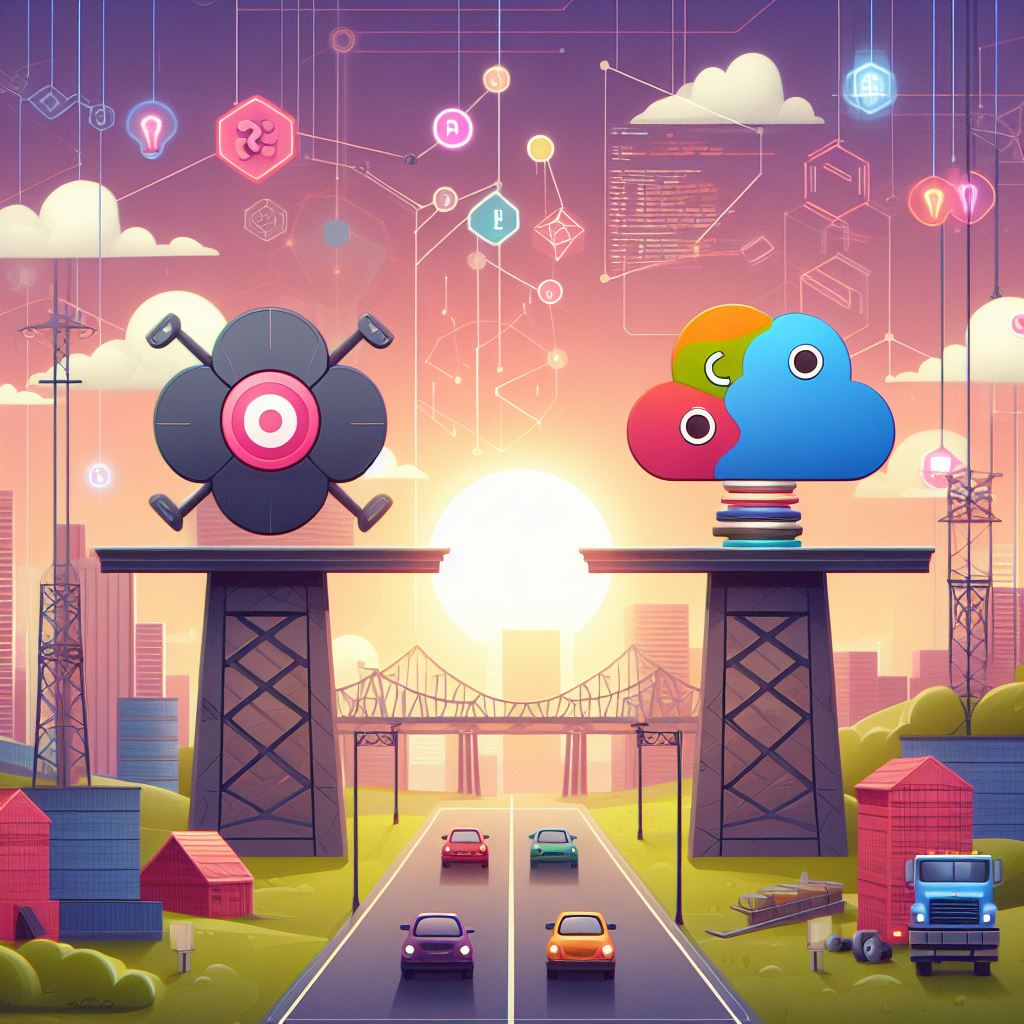Introduction:
Both Node.js and PHP are established players in web development, but which reigns supreme for modern web applications in 2024? Let’s dive into their technical aspects to help you make an informed decision.
Architectural Differences:
Node.js: Utilizes an asynchronous, event-driven architecture. This allows it to handle numerous concurrent requests efficiently, making it ideal for real-time applications like chat or streaming.
PHP: Employs a traditional multi-threaded model. While reliable, it can struggle with a high volume of concurrent requests.
Development Speed:
Node.js: The shared JavaScript codebase between front-end and back-end development in Node.js streamlines development and reduces context switching.
PHP: While PHP offers robust frameworks like Laravel, development might involve learning separate languages for front-end and back-end.
Scalability:
Node.js: Node.js excels at horizontal scaling, meaning you can easily add more servers to handle increased traffic.
PHP: Scaling PHP applications can be more complex, often requiring vertical scaling (upgrading existing servers).
Community and Resources:
Node.js: Boasts a vast and active developer community with a rich ecosystem of libraries and frameworks on npm (Node Package Manager).
PHP: Supported by a long-standing community, PHP offers a mature set of frameworks like Laravel and CodeIgniter.
Choosing Your Champion:
Node.js shines for real-time applications, single-page applications, and projects requiring high scalability. PHP remains a solid option for content-driven websites, e-commerce platforms, and applications that leverage its deep integration with relational databases.
Understanding Node.js and PHP
The world of web development revolves around powerful tools. Two such titans are Node.js and PHP, both instrumental in building dynamic websites and applications. But what exactly are they, and how do they differ?
PHP: The Veteran Warrior
Imagine a seasoned programmer, PHP. It’s a scripting language specifically designed for web development. Since 1994, it’s been a cornerstone, adept at creating content management systems, e-commerce platforms, and more. PHP excels at working with databases, making it a natural fit for data-driven applications.
Node.js: The Agile Challenger
Enter Node.js, a younger but rapidly growing technology. Unlike PHP, it’s not a language itself, but a runtime environment that allows you to use JavaScript on the server. This means developers familiar with JavaScript for front-end development can seamlessly transition to back-end tasks. Node.js thrives on real-time applications like chat or collaborative tools with its event-driven architecture.
Choosing Your Champion
While both excel in their areas, picking the right tool depends on your project. Need a robust e-commerce platform or a data-heavy website? PHP might be your champion. Do you envision a real-time chat application or a fast-paced single-page app? Node.js could be your perfect partner.
United in Power
Despite their differences, Node.js and PHP can even co-exist! Some developers leverage the strengths of both – using PHP for content management and Node.js for real-time functionalities within the same application.
Understanding Node.js and PHP empowers you to make informed decisions for your web development journey. Consider your project’s needs and explore the vast resources available for both technologies to build your web empire!
Key Differences and Considerations
In the realm of web development, selecting the ideal back-end technology is crucial. Two prominent contenders, Node.js and PHP, constantly vie for the top spot. While both boast impressive capabilities, understanding their key differences is paramount for making an informed decision.
Architectural Foundations:
Node.js: Embraces an asynchronous, event-driven architecture. This allows it to handle numerous concurrent requests efficiently, making it perfect for real-time applications where data updates constantly (think chat or live dashboards).
Imagine a skilled juggler effortlessly handling multiple tasks simultaneously.
PHP: Operates on a traditional multi-threaded model. This tried-and-true approach is reliable but can struggle when bombarded with a high volume of concurrent requests. Think of a single waiter managing multiple tables; it works well for a steady flow, but peak hours might lead to delays.
Development Speed and Efficiency:
Node.js: Utilizes JavaScript, the ubiquitous language of the web. This shared codebase between front-end (user interface) and back-end (server-side logic) development streamlines the process. Developers can leverage their existing JavaScript knowledge, reducing context switching and boosting efficiency.
PHP: While robust frameworks like Laravel exist, development often involves learning separate languages for front-end and back-end. This can create a steeper learning curve for beginners and potentially slow down development.
Scalability for Growth:
Node.js: Excels at horizontal scaling. As your application gains traction, you can effortlessly add more servers to distribute the workload. This allows you to handle increasing traffic without compromising performance – like adding more lanes to a highway to accommodate more cars.
PHP: Scaling PHP applications can be more intricate. Often, vertical scaling (upgrading existing servers) is the primary option. This can become expensive and require more maintenance as your application grows.
Community and Resource Landscape:
Node.js: Boasts a vibrant and active developer community. The npm (Node Package Manager) offers a vast ecosystem of readily available libraries and frameworks, accelerating development and providing solutions for common challenges. Imagine a bustling marketplace overflowing with tools and helpful experts.
PHP: Enjoys a long-standing and well-established community. Mature frameworks like Laravel and CodeIgniter provide a solid foundation for development. However, the resource pool might not be as vast or cutting-edge compared to Node.js.
Considerations for Your Project:
Ultimately, the best choice hinges on your project’s specific requirements. Here are some key considerations:
Performance Needs: For real-time applications or high-concurrency scenarios, Node.js might be the superior option.
Development Team Expertise: If your team is proficient in JavaScript, Node.js offers a smoother learning curve.
Project Scope: For content-driven websites or e-commerce platforms, PHP’s integration with databases could be advantageous.
Beyond the Divide: Coexistence and Collaboration
The rivalry between Node.js and PHP isn’t absolute. Some projects leverage the strengths of both! Developers might utilize PHP for content management and Node.js for real-time functionalities within the same application.
Understanding the key differences and considerations between Node.js and PHP empowers you to make an informed decision for your web development journey. Carefully evaluate your project’s needs and explore the abundant resources available for both technologies to build a robust and successful web application.
Choosing the Right Technology
The ever-evolving landscape of web development presents developers with a multitude of powerful technologies. When building modern web applications, two prominent back-end options emerge Node.js and PHP. Both boast impressive capabilities, but selecting the right tool requires careful consideration of your project’s specific needs. Let’s delve into the factors that will guide you toward the optimal technology for your web app.
Understanding Project Requirements:
The cornerstone of choosing the right technology lies in thoroughly understanding your project’s requirements. Here are some key questions to ask:
Application Type: Are you building a real-time chat application, a data-driven e-commerce platform, or a content-heavy blog? Different functionalities necessitate different technological strengths.
Scalability Needs: Do you anticipate a surge in traffic as your application gains popularity? Consider how the technology handles scaling to accommodate future growth.
Performance Expectations: Does your application demand lightning-fast response times or prioritize robust database interactions? Understanding performance benchmarks is crucial.
Development Team Expertise: What programming languages are your developers most comfortable with? Leveraging existing skillsets can streamline development and reduce learning curves.
Node.js vs. PHP: A Feature Breakdown
Once you have a clear understanding of your project’s needs, it’s time to analyze the strengths and weaknesses of Node.js and PHP:
Architectural Approach:
Node.js: Employs an asynchronous, event-driven architecture, ideal for handling numerous concurrent requests efficiently. This makes it perfect for real-time applications.
PHP: Operates on a traditional multi-threaded model, well-suited for content-driven websites but might struggle with high concurrency.
Development Speed:
Node.js: Shares a codebase with JavaScript (the language of front-end development), streamlining development for teams familiar with JavaScript.
PHP: Often requires learning separate languages for front-end and back-end, potentially slowing down development.
Scalability:
Node.js: Excels at horizontal scaling, allowing you to effortlessly add more servers to distribute the workload as your application grows.
PHP: Scaling PHP applications can be more complex, often requiring vertical scaling (upgrading existing servers), which can become expensive.
Community and Resources:
Node.js: Boasts a vibrant developer community and a vast ecosystem of libraries and frameworks available through npm (Node Package Manager).
PHP: Enjoys a mature and well-established community with frameworks like Laravel, but the resource pool might be smaller compared to Node.js.
Beyond the Binary: Exploring Coexistence
While Node.js and PHP often appear as competitors, some projects can benefit from their combined strengths. Developers might leverage PHP for content management functionalities and Node.js for real-time features within the same application.
The Final Decision: Making an Informed Choice
By carefully considering your project’s requirements, the strengths and weaknesses of Node.js and PHP, and your development team’s expertise, you can make an informed decision about the most suitable technology. Remember, there’s no one-size-fits-all answer. The key lies in aligning the technology’s capabilities with your project’s specific needs for a successful development journey.
Conclusion
In the ever-changing arena of web development, both php vs node.js remain powerful contenders. While Node.js shines for real-time apps and speedy development, PHP excels in content management and database integration. Understanding their strengths and your project’s specific requirements will guide you towards the champion that best propels your modern web application to success.
FAQ:
-
Q: Which is faster, Node.js or PHP?
A: For real-time applications with high concurrency, Node.js generally offers faster performance due to its asynchronous architecture. However, for simpler tasks or content-driven websites, PHP can be equally efficient.
-
Q: Is Node.js easier to learn than PHP?
A: If you’re already familiar with JavaScript, Node.js might have a smoother learning curve due to the shared codebase. However, PHP itself is considered a beginner-friendly language. The choice depends on your existing programming knowledge.
-
Q: Which has a larger community, Node.js or PHP?
A: PHP boasts a longer-standing and more extensive community. However, Node.js has a rapidly growing and vibrant developer base, with a wealth of resources available through npm.
-
Q: Is Node.js better for e-commerce platforms?
A: While Node.js can handle e-commerce functionalities, PHP’s strong integration with relational databases makes it a traditional favorite for e-commerce applications due to its emphasis on data management.
-
Q: Can I use Node.js and PHP together in a project?
A: Absolutely! Some developers leverage the strengths of both. For instance, you could use PHP for content management and Node.js for real-time features within the same web application.























